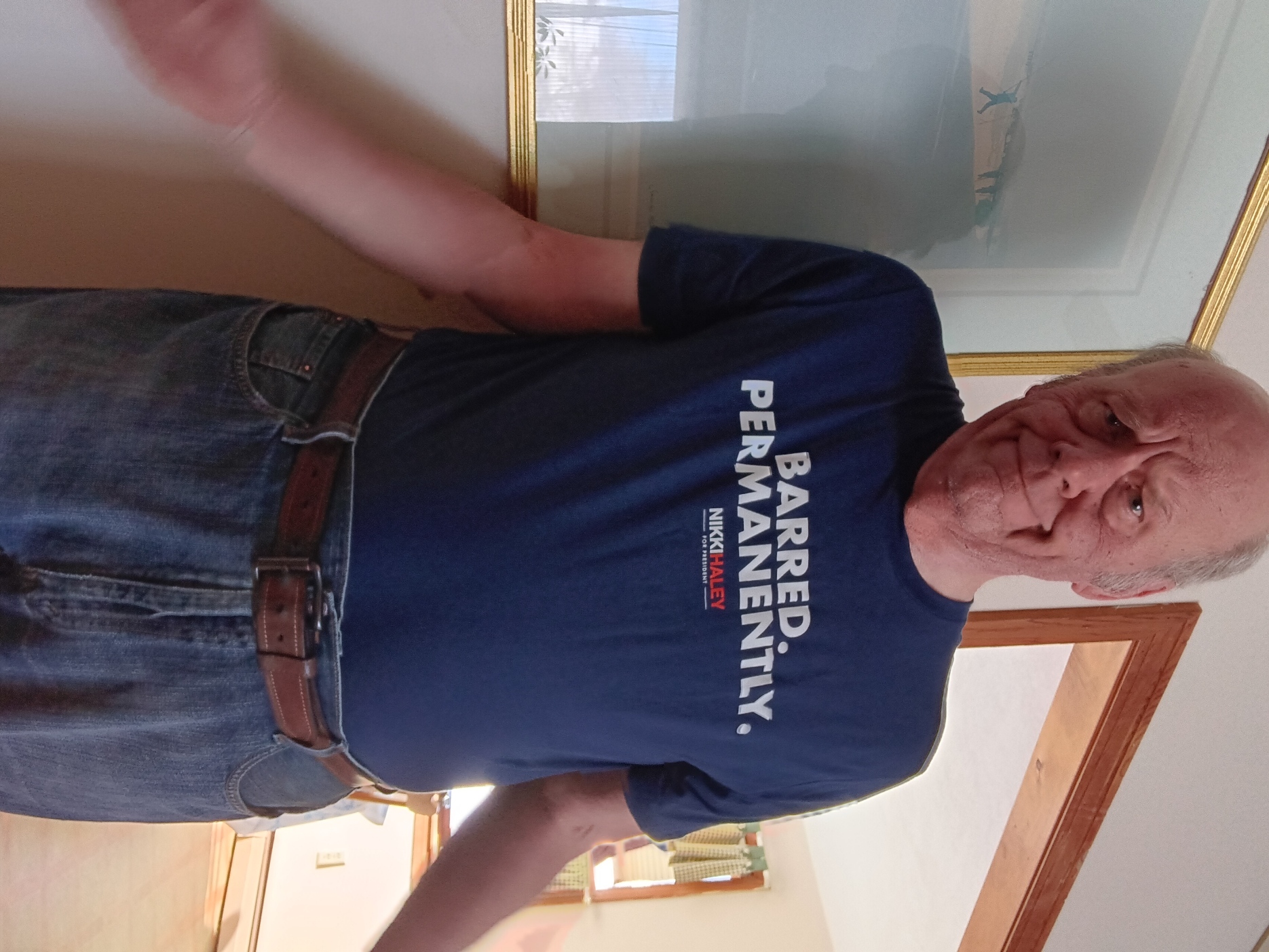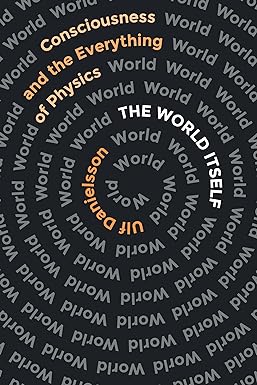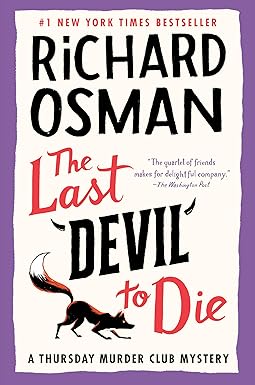Nick Catoggio goes all Casablanca, and who can blame him: We’ll Always Have Vermont (as well as the District of Columbia.)
You can’t feel disillusioned by politics if you weren’t under illusions to begin with.
Whichever other words one might choose to describe the aftermath of Super Tuesday’s Republican primaries (my favorites are unprintable), “disillusioned” isn’t apt. For the readers of this site especially, the nature of the modern right was laid bare long ago. Yesterday’s outcome represented the last few wheezing breaths of a patient who plainly had been terminally ill since at least 2015 and probably long before.
It’s fine and proper to feel strong emotions at such a moment. But no one who watched that patient waste away would describe themselves as “disillusioned” upon seeing them succumb.
The time of death for the conservative movement was 10 a.m. ET on Wednesday morning.
And that sad moment is illustrated at your right. Also chiming in with a depressing take is Joe Lancaster: Nikki Haley Offered an Off-Ramp from Trumpism. Republicans Didn't Care.
Haley, a former South Carolina governor who also served as ambassador to the United Nations under Trump, entered the race in February 2023. She was the first candidate to do so after Trump—an awkward position after saying explicitly in 2021 that "I would not run if President Trump ran" and that she would support his reelection bid.
Ultimately, awkward characterized much of Haley's campaign positioning, as she tried to simultaneously appeal to both MAGA diehards and Never-Trump conservatives. She was never as forcefully anti-Trump as New Jersey Gov. Chris Christie, nor as vociferously pro-Trump as Vivek Ramaswamy.
Haley spoke of the need for "a new generation of leadership"—an implicit shot at both Trump and President Joe Biden, who would respectively be 78 and 82 years old on Inauguration Day 2025. She characterized the former president less as unfit for office than just unsuited for the current moment: "Eight years ago, it was good to have a leader who broke things," Haley said in October. "But right now, we need to have a leader who also knows how to put things back together."
But going easy on Trump didn't endear her to his supporters: Ahead of the Iowa caucus in January, Sen. Rand Paul (R–Ky.) posted a video on X (formerly Twitter) in which he declared himself "Never Nikki," effectively offering his endorsement to any Republican or Independent candidate except Haley. Trump himself mocked Haley in clear racist overtones—first by suggesting that despite being born in South Carolina, she was not qualified for office because her parents were Indian immigrants, and then by simply making fun of her first name, Nimarata.
And Nate Silver has a relevant diagnosis: Nikki Haley's problem is America's problem. He notes polling that shows self-identified "conservatives" went heavily for Trump. While "Moderate/Liberal" voters clearly went Haley.
So, yeah. If there had been an electorate consisting only of moderate Republican voters — including, in several of these states, independents and Democrats who crossed over to vote on the GOP side — Haley, despite being a former Tea Party star and [far?] from a true moderate herself, would be the frontrunner for the nomination. But she’s winning very little support from self-described conservative Republicans — just 14 percent in California, for instance, and only 29 percent in South Carolina, the state where she was once governor. This is a contrast to McCain, who actually narrowly edged out Bush (within the margin of error) 37-36 among conservative voters in the New Hampshire primary in 2000.
I’m less hung up on what the term “conservative” means than I am about “liberal”. Liberal has a much more specific historical origin, one that was vital in the founding of the United States and other liberal democracies, and which is obscured by the American tendency to use “liberal” as a synonym for “left”. True liberals can have a healthy amount of respect for a strain of conservatism that upholds certain of these traditions, like individual liberty and the rule of law, even if they hope to discard others.
I am not prone to hyperbole about Trump, but he very much is not in that tradition, obviously. January 6 was a dangerous, radical insurrection that undermined the rule of law and the democratic process. A second Trump term would at the very least almost certainly entail a massive expansion of executive powers and — although I’m more optimistic about the checks-and-balances of the American system and particularly the role of the courts than some commentators — potentially even push the Republic to the brink.
Note: don't call me a "liberal" unless you prepend the "classical" adjective.
And a further note: if I get any pleas for cash from the Trump campaign, I plan on just sending them this
pic:
 Also of note:
Also of note:
-
I'm told that saying "Calm down" is sometimes ineffective at getting people to calm down. Jonah Goldberg tries a different two words: Apocalypse Not.
I’m not going to tell you how to vote. I am going to tell you how to think about voting. But I’m going to take you on a journey to get there.
Let me skip ahead. Five years from now, America will be okay. You’ll probably be okay. And if you are not okay, it will in all likelihood have nothing to do with who was elected president in 2024.
Those of you who think I’m trying to reassure anti-Trump people (like me), despondent over the prospect of another Trump presidency, you’re right. But I’m also talking even more to pro-Trump folks, convinced that America can’t survive four more years of Joe Biden.
All of you need to get off the ledge.
Good advice, unfortunately behind the Dispatch paywall. "Get off the ledge, subscribers! The rest of you… eh, go ahead and jump."
-
Will banning 'scalping' fix the ticket resale market? Reader, Drew Cline answers that burning question at the Josiah Bartlett Center: Banning 'scalping' won't fix the ticket resale market.
Imagine you own a small entertainment venue in New Hampshire. What’s the value of an aisle seat in Row 37 on a Wednesday night in April?
Let’s say you printed the date, the time and a price of $100 on the ticket. Would that make the ticket worth $100? How about $200?
No idea, right?
You don’t have enough information to answer that question. You first have to know: 1.) Who’s playing that night, and 2.) How much are people willing to pay to sit in that seat in that venue at that time for that artist?
The number of people interested in renting that seat for two hours on a Wednesday night would vary along with the popularity of the artist. That number would be lower for a Dead Kennedy’s show than for a Dua Lipa show. (Yes, we know who Dua Lipa is. Kind of.)
I have added the DUA of Dua Lipa to my crossword puzzle guidance post.
But Drew makes the obvious points: the venues should charge a market-clearing price, or try to.
If they don't? Well, if they overcharge, the resellers will take up the slack. And if they overcharge, well, bad for them. Either way, there's little reason for government to regulate.
-
CUL8TR. Sounds like Varad Raigaonkar is making a safe bet: Your Local DMV May Have No Sense of Humor.
For the price of $77 to $224, Pennsylvania residents can get a personalized license plate that "contain[s] a combination of up to seven letters and/or numbers," per the state's Department of Transportation (PennDOT).
That is unless your application for a vanity plate is among the 2,872 rejected over the years.
The department keeps a "Do Not Issue" list, effectively banning thousands of "unacceptable configurations" that they interpret as euphemisms, epithets, or obstructions to law enforcement.
I should mention that Pun Salad has kept its eagle eye on vanity plate rules over the years. Check out our coverage of MRSED, Iowa censorship, censorship in (even) the LFOD state, censorship in Maine, censorship in (of course) Nova Scotia, and censorship in Maine (again).
| Recently on the book blog: |


![[The Blogger and His Dog]](/ps/images/me_with_barney.jpg)



